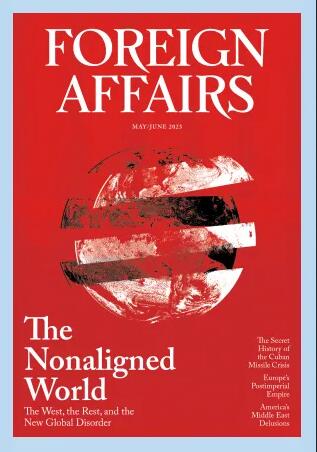德国、法国和比利时在创建欧盟中的历史意义
IF 6.3
2区 社会学
Q1 INTERNATIONAL RELATIONS
引用次数: 1
摘要
这项研究的相关性取决于有必要分析欧洲国家的积极经验,以便在乌克兰参加国际组织和与欧洲联盟成员国的关系时,将其用于乌克兰的外交政策。本研究的目的是调查德国、法国和比利时的外交政策在欧盟发展中的作用,并对这些政策的结果进行彻底的评估。为达到这一目的,运用了辩证唯物主义、要素话语分析、演绎与归纳、分析与综合、系统分析、结构与功能分析、比较法等方法。本文考察了德国、法国和比利时这三个国家在欧盟创建历史上的目标、作用和地位。每个国家的利益都有自己的特点,它们的国家政策的具体内容及其对深化欧洲一体化的影响都是确定的。各国对欧盟组织的方法,他们的共同和独特的特点进行了分析。确定了德国、法国、比利时在合作过程中的具体关系。这些国家已成为欧洲深化一体化的主要发起者。研究表明,20世纪后期法国和德国的关系成为欧洲安全问题合作的典范。可以确定的是,法国是欧盟成功实施项目和批准法律法规的作者。值得注意的是,尽管国土面积小,比利时发挥了重大的政治影响,比荷卢经济联盟在创建欧洲联盟的过程中成为经济统一的一个例子。所获得的结论有助于解决与乌克兰自身一体化进程的发展和在制定外交政策时保护其自身利益有关的实际问题。这些材料可以作为培训政治科学家、国际专家和科学文献工作的教育过程的基础本文章由计算机程序翻译,如有差异,请以英文原文为准。
Historical significance of Germany, France and Belgium in the creation of the European Union
The relevance of the study is conditioned by the need to analyse the positive experience of European countries for its use in Ukraine’s foreign policy when participating in international associations, in relations with the member states of the European Union. The purpose of the study is to investigate the role of the foreign policies of Germany, France, and Belgium in the development of the European Union, and to conduct a thorough assessment of the results of such policies. To achieve this goal, such methods as dialectical materialism, factor discourse analysis, deduction and induction, analysis and synthesis, system analysis, structural and functional analysis, and the comparative method were used. The paper examines the goals and objectives, the role and place of three states: Germany, France, and Belgium in the history of the creation of the European Union. The interests of each of the states are characterised, the specifics of their national policy and its impact on the deepening of European integration are determined. The approaches of countries to the organisation of the European Union, their common and distinctive features are analysed. The specifics of relations between Germany, France, and Belgium in the process of their cooperation are determined. It is stated that these countries have become the leading initiators of deepening integration in Europe. The study shows that relations between France and Germany in the late 20th century became an example of cooperation in European security issues. It is established that France is the author of successfully implemented projects and approved laws and regulations in the European Union. It is noted that despite the small territory, Belgium exerted significant political influence, and the Benelux Union became an example of economic unification in the process of creating the European Union. The conclusions obtained contribute to solving practical issues related to the development of Ukraine’s own integration processes and the protection of its own interests in building foreign policy. The material can serve as a basis for the educational process in the training of political scientists, international specialists, and in the work on scientific literature
求助全文
通过发布文献求助,成功后即可免费获取论文全文。
去求助
来源期刊

Foreign Affairs
INTERNATIONAL RELATIONS-
CiteScore
4.80
自引率
0.00%
发文量
2
期刊介绍:
Founded in 1922, Foreign Affairs is a prominent American magazine that focuses on international relations and U.S. foreign policy. It is published by the Council on Foreign Relations, an esteemed nonpartisan think tank and membership organization dedicated to analyzing U.S. foreign policy and global affairs. While the print magazine is released every two months, the website offers daily articles and publishes anthologies every other month.
 求助内容:
求助内容: 应助结果提醒方式:
应助结果提醒方式:


